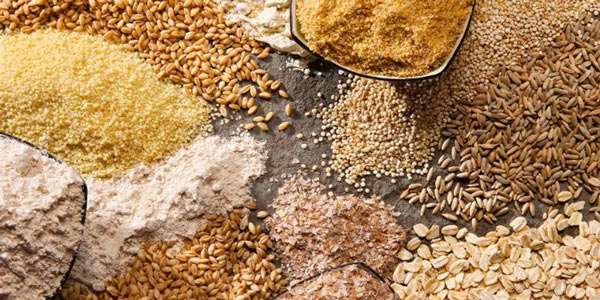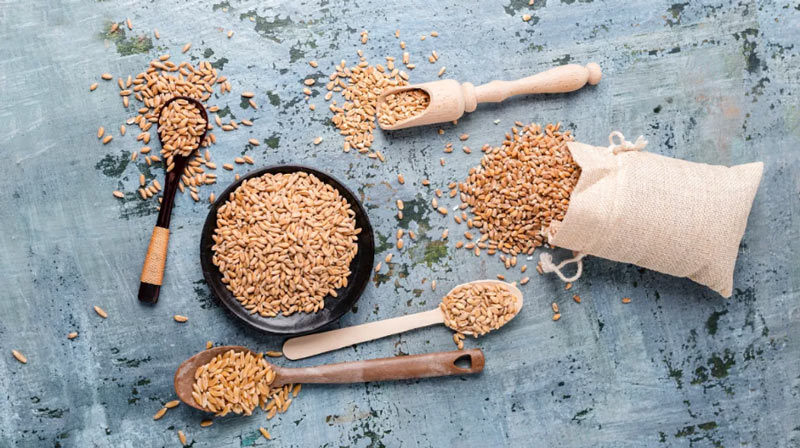
If your search for nutritional sources to help improve your golf performance has led you to examine the health benefits of whole-grain cereals, you’ve come to the right place.
Whole grains provide an excellent source of nutrition and can be a key part of helping you optimize your overall health and achieve powerful results on the course.
In this blog post, we dive into everything there is to know about whole grain cereal, including its history, types available, various health benefits, and potential side effects.
Read on for more information that will give you the knowledge to make informed decisions about fueling up before hitting those greens!
What Is Whole Grain Cereal and Its Nutritional Benefits
Whole grain cereal is a food product made from whole grains that have been ground or rolled into flakes, nuggets, puffs, or other shapes. It contains all the essential nutrients in whole grains, such as fiber, vitamins, minerals, and protein.
Whole grain cereals are considered healthier than their refined counterparts because they retain more of the beneficial components of the grain.
Many whole-grain cereals are available, from oats and barley to wheat, rye, corn, and millet. Each type has its unique nutritional profile, including specific amounts of vitamins, minerals, and fiber.
Eating a variety of whole grains can provide you with all the essential nutrients your body needs for optimal health.
Whole grain cereals offer a range of health benefits and can help reduce the risk of certain chronic diseases, such as heart disease, stroke, type 2 diabetes, and certain types of cancer. Whole grain cereals can lower bad (LDL) cholesterol levels, reduce inflammation and help maintain a healthy weight.
Different Nutritional Types Of Whole Grain Cereals Available

When it comes to whole grain cereals, there is a wide variety of options available. You can find several different whole-grain cereals on the market, from oats and barley to wheat and cornflakes.
Here are a few popular varieties that may be available in your local grocery store:
– Oats are highly nutritious and contain high fiber, magnesium, and antioxidants. Oats can be enjoyed in their raw form or cooked with milk or water to make oatmeal.
- Barley – Barley is another nutritious grain that contains a high amount of dietary fiber. It can be eaten as a breakfast cereal or used to create dishes such as barley soup.
- Wheat – Wheat is a highly popular grain for making bread, flour, and other products. It is also very nutritious and contains highly complex carbohydrates, dietary fiber, and protein.
- Corn flakes – Corn flakes are one of the most popular breakfast cereals and can be found in just about any grocery store. They are made from corn flour and contain many carbohydrates, fiber, and protein.
Health Benefits of Eating Whole Grain Cereal
Whole cereal is a great way to start your day and get essential nutrients. Whole grains provide fiber, protein, vitamins, minerals, and other important nutrients that can help keep you healthy. They also contain antioxidants which can help protect the body from damage caused by free radicals.
Eating whole grain cereal regularly can have many health benefits, including lowering the risk of heart disease, diabetes, obesity, and some cancers.
Regarding nutrition, whole-grain cereals are the way to go! Compared to refined grains (think white bread and white rice), which have had bran and germ removed, whole grain cereals contain all three parts of the grain: bran, endosperm, and germ.
This means they offer a higher level of essential nutrients and fiber, which can help keep you full for longer.
Potential Side Effects Of Eating Too Much Whole Grain Cereal

Despite many health benefits associated with eating whole grain cereal, there are potential side effects from eating too much of it. These can include digestive issues such as bloating and gas, high cholesterol levels, abdominal pain, and increased risk for type 2 diabetes.
Eating large amounts of fiber from grains can also cause constipation in some people. Additionally, foods made with whole grain cereals may contain added sugar and can lead to weight gain if eaten in excess.
Modifying the portion size of whole grain cereals and combining them with other nutritious foods such as fruits, vegetables, lean proteins, dairy products, and healthy fats is important. This balanced diet will provide the nutrition you need without overdoing it on whole-grain cereal.
How To Choose The Right Whole Grain Cereal For You
Whole grain cereal is an excellent option for many people seeking to improve their diet and health. It provides a variety of important nutrients, including protein, fiber, vitamins, minerals, and antioxidants.
Many different types of whole grain cereals are available on the market today. Choosing the best one can depend on your individual needs and preferences.
When selecting a whole grain cereal, it is important to consider its nutritional value and potential health benefits or side effects. Whole grains are an excellent source of complex carbohydrates, protein, fiber, vitamins, minerals, and antioxidants.
They also provide essential fatty acids that benefit heart health and may help reduce the risk of certain diseases.
FAQs
1. What is whole grain cereal?
Whole grain cereals have been minimally processed, generally with all components (germ, endosperm, and bran) intact. Examples of whole-grain cereals include wheat, oats, barley, rye, wild rice, and quinoa.
2. What are the health benefits of eating whole-grain cereal?
Whole grain cereals contain various essential vitamins, minerals, and dietary fiber. Eating whole grains can help to reduce the risk of developing Type 2 diabetes, cardiovascular disease, and some forms of cancer. In addition, they may also help with weight management due to their high fiber content.
3. What types of whole grain cereal are there?
Many whole-grain cereals are available, including oats, wheat, barley, rye, wild rice, and quinoa. Depending on the type of cereal you choose, each one offers unique health benefits and nutrition.
Conclusion
In Conclusion, whole grain cereals are a great option for those looking to increase their nutrient intake and maintain a healthy diet. Whole grains have been linked to lower risk of diseases such as type 2 diabetes, heart disease, and stroke, as well as providing essential nutrients like Vitamin B, fiber, magnesium, selenium, and iron.
Many whole-grain cereals are available, including oats, barley, and wheat. Each type offers its own unique health benefits and side effects. Researching the different types of whole-grain cereals is important to determine which one is best for you.



